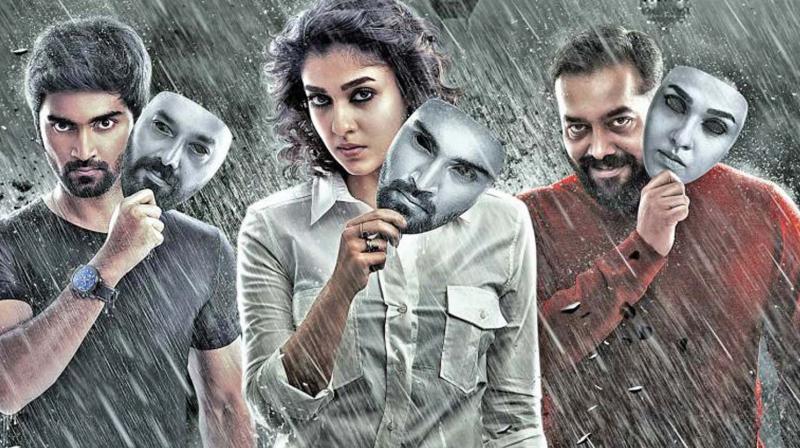Novelists to the rescue!
A published author turning into a screenplay writer has its own pros and cons.

The trend of novelists doubling up as screenplay writers has caught on and Tamil directors are fully on-board! When compared to other south Indian languages, Kollywood has the habit of hiring novelists to work on the screenplay, so that they are able to add their unique perspective to enhance stories.
By doing so, directors have the liberty to concentrate on the other aspects of filmmaking. Movies like Thani Oruvan, Kaaki Sattai and Kavan, which followed this trend, were lauded for their solid writing, the credit for which must go to those wield the mighty pen!
Writers Suresh and Balakrishnan are the ‘Subha’ duo currently working on Sundar C’s magnum opus, Sangamithra. Suresh explains, “The basic idea is to convey a story. When we are publishing books, a lot of things are left to people’s imagination. The novelist’s idea may or may not work. But, when it comes to films, we cut down on the imagination as the director establishes the characters in the first few minutes of a film. We will have to hone a script according to the director’s vision, by understanding the rules of the fame and applying the knowledge to convey our thoughts.”
The duo, who were the brains behind Thani Oruvan as well , add that there is no place for personal ego. “Of course, there will be discussions and debates, but we should follow a friendly approach. I wouldn’t call it a compromise as it is always about enhancing the story. We are fortunate to have worked with matured directors and they give utmost importance to the script. A director, doubling up as a script writer, has a few advantages, but it is constrained to his limited knowledge,” he asserts.
Pattukottai Prabhakar, who has penned the screenplay of Ajay Gnanamuthu’s Imaikaa Nodigal, reveals that novelists doubling up as dialogue or screenwriters has been in vogue since the days of famed yesteryear writer Jayakanthan.
“It has been on and off though. A new fad is that directors are open to adapting a novel as a film, but may not welcome the writer to pen the screenplay. I think it is characteristic for a novelist to think up a scene with visuals in mind. It comes easily to us and a screenplay is nothing but a bunch of coherent sequences. When I write a book, I am the king and my decision is final. We cannot expect such level of freedom in films. There have been films where the director wouldn’t even listen to my ideas! That is when the problem arises.
Director KV Anand, who has worked with ‘Subha’, multiple times, puts things into perspective — “I think it’s only in Tamil cinema where directors doubling up as writers is dominant. Having a novelist in your team brings a lot of things to the table. When I have writers like Subha, I trust them to bring in their perspectives that will appeal to a wide audience. While I respect directors doing multiple roles, for their talent and ability, I think having a dedicated writer on board is the norm in filmmaking. That shows the respect you have towards the art.”
Renowned crime novelist, Rajesh Kumar shares, “My recent projects are Kuttram 23 and Chennaiyil Oru Naal 2. Both these films are based on my novel and I reworked the screenplay and story to suit the feature film format.”
However, the industry has not been kind to the writer — “I have faced a lot of bitter experiences in the cinema industry. A few directors give importance to writers till they buy the story from them. After that, they won’t even respect us! When I am approached, I make sure I talk to the director, producer and cinematographer before narrating my story,” he quips.
Talking about plagiarism issues, he recalls, “There are countless number of films that were adapted from my novels, and I wasn’t given due credit and money. Writing is my primary job. So, I work on the condition that directors have to come to Coimbatore for the story discussion session.”
(With inputs from Niveda Manohar)

